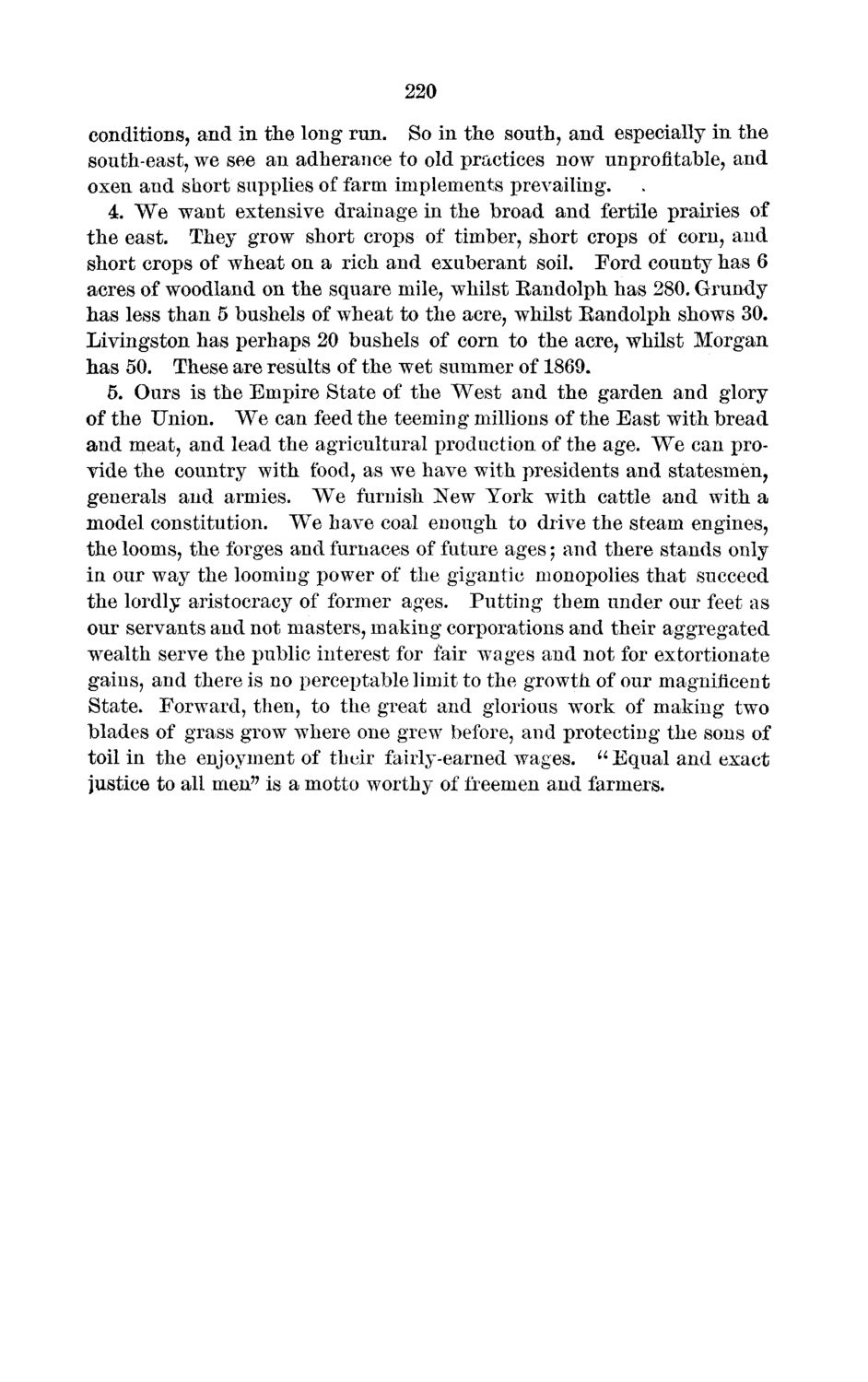| |
| |
Caption: Board of Trustees Minutes - 1873
This is a reduced-resolution page image for fast online browsing.

EXTRACTED TEXT FROM PAGE:
220 conditions, and in the long run. So in the south, and especially in the south-east, we see an adherance to old practices now unprofitable, and oxen and short supplies of farm implements prevailing. 4. We want extensive drainage in the broad and fertile prairies of the east. They grow short crops of timber, short crops of corn, and short crops of wheat on a rich and exuberant soil. Ford county has 6 acres of woodland on the square mile, whilst Eandolph has 280. Grundy has less than 5 bushels of wheat to the acre, whilst Eandolph shows 30. Livingston has perhaps 20 bushels of corn to the acre, whilst Morgan has 50. These are results of the wet summer of 1869. 5. Ours is the Empire State of the West and the garden and glory of the Union. We can feed the teeming millions of the East with bread and meat, and lead the agricultural production of the age. We can provide the country with food, as we have with presidents and statesmen, generals and armies. We furnish New York with cattle and with a model constitution. We have coal enough to drive the steam engines, the looms, the forges and furnaces of future ages; and there stands only in our way the looming power of the gigantic monopolies that succeed the lordly aristocracy of former ages. Putting them under our feet as our servants and not masters, making corporations and their aggregated wealth serve the public interest for fair wages and not for extortionate gains, and there is no perceptable limit to the growth of our magnificent State. Forward, then, to the great and glorious work of making two blades of grass grow where one grew before, and protecting the sons of toil in the enjoyment of their fairly-earned wages. " Equal and exact justice to all men" is a motto worthy of freemen and farmers.
| |